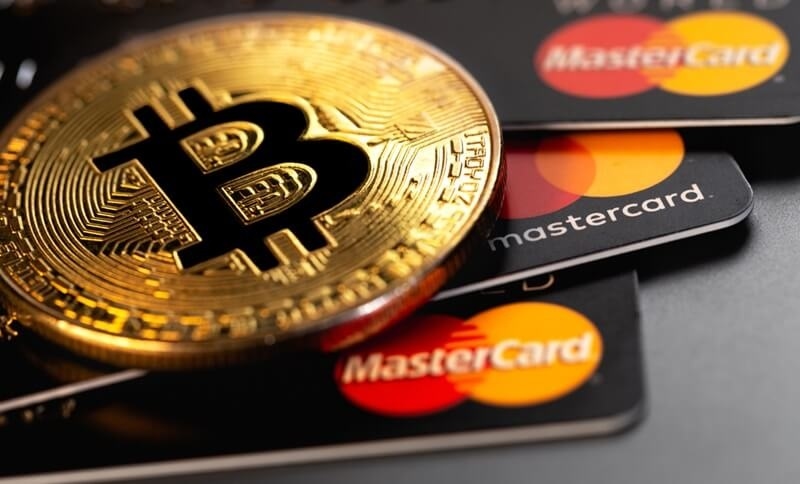
The money usage is also being modified, as is the role of the banks. As more and more people are investing in cryptocurrency such as Bitcoin and Ethereum, the American banks are starting to make the transition. They're not just where you put dollars anymore. Some of them are now finding themselves investing in crypto banking ventures that involve holding, converting, and even accumulating interest on cryptocurrencies.
In this blog, we’ll take a close look at how digital banks in the U.S. are responding to this shift. From crypto-fiat onramp banks USA to bank-grade crypto security, new solutions are making crypto more accessible and safer for everyone.
Crypto banking services refer to the tools and offerings from banks or digital platforms that allow users to interact with cryptocurrencies. This can include:
The above services fill the gap between the conventional banking sector and the new era of digital assets.

Historically, most traditional banks shunned cryptocurrencies. They were deemed risky or unmanageable. But now that is in the past. Nowadays, numerous U.S.-based digital banks and fintech firms are now embracing crypto banking services to serve clients.
Chime, SoFi, Revolut (in the U.S.), and other platforms are entering the crypto space with features like crypto wallets, real-time trading, and round-the-clock access. These digital banks are much more flexible compared to old-school banks. And since many young investors now own Bitcoin or Ethereum, banks want to be where their customers are headed.
One of the largest changes financial institutions have undertaken is crypto custody—the safe-keeping of your crypto funds.
American banks offering crypto custody are giving customers peace of mind. As opposed to personal wallets that leave you vulnerable to private keys, bank custody solutions put these funds in extremely secure places. These arrangements typically involve cold storage, multi-signature authorization, and round-the-clock monitoring.
Some of these American institutions include:
As regulations continue to solidify, more and more banks will follow suit in providing crypto banking services with custody.
If you've ever attempted to purchase crypto, then you know it usually comes with a third-party exchange. But crypto-fiat onramp banks USA are streamlining it.
An on-ramp literally receives cryptocurrency, such as Bitcoin, when you trade your U.S. dollars. Certain online banks enable you to do that directly from your bank account, without an extra wallet or exchange.
Examples include:
Such banks provide seamless onramp services along with being compliant with federal banking regulations. By incorporating these features, crypto-fiat onramp banks USA are removing entry obstacles for new investors.
One of the other crypto banking products trends that is on the horizon is earning interest on your cryptocurrencies. They refer to them as crypto interest accounts.
Rather than your Bitcoin or Ethereum just sitting there in a wallet, you can place it with some banks and platforms and earn paid interest, such as a savings account.
Some of the firms providing crypto interest accounts are:
Though these products have tremendous earning potential, users need to be careful. The accounts are not guaranteed, and the platforms are exposed to market risk. Nevertheless, some U.S. digital banks are attempting to provide safer, regulated means of adding crypto interest accounts into their product platform.
Security is paramount when handling digital assets. Crypto wallets can be breached, private keys can be lost, and after it's lost, it's most likely gone forever. That's why bank-grade crypto security doesn't mess around in the business.
Bank-grade crypto security is when institutions use the very same strict protocols that they do for traditional banking systems—only even tighter controls tailored just for digital assets.
Its main features are:
Companies like Anchorage, BitGo, and Fireblocks provide services for both retail and institutional customers. Banking services for crypto hosted by digital banks now increasingly involve partnerships with these companies to offer best-of-breed security.
Legacy banks entering the space are also opting to outsource custody to companies providing bank-grade crypto security.
FDIC (Federal Deposit Insurance Corporation) insures bank customers' deposits in U.S. banks for up to $250,000. But what about crypto?
The least understood aspect of crypto banking services is the FDIC and crypto deposits. Here's how it works:
Example:
This is a miscomprehension that all users dread. With increasing demand, there is increasing pressure to have stronger consumer protections and even greater roles for the FDIC in the future.
So far, customers must exercise caution and review the fine print. Because a platform is operated like a bank doesn't always mean it will have the same protections. FDIC insurance covers only dollars, not crypto.
The U.S. government and financial regulators are still grappling with how to treat crypto within the banking system. Banks must exercise caution when dealing with crypto banking regulations.
The Office of the Comptroller of the Currency (OCC) has previously licensed some national banks to provide custody and crypto services. However, states such as New York have their own set of strict requirements. The Securities and Exchange Commission (SEC) and the Commodity Futures Trading Commission (CFTC) are also watching closely.
Those digital banks that aspire to thrive in this niche must:
Even with the sluggish beginning, institutions are increasingly joining this sector. The future is promising with hybrid structures where crypto and finance can exist side by side in one well-protected and regulated space.
You may ask: Why should I care?
Well, if you have Bitcoin, Ethereum, or stablecoins, crypto banking services make it easy to handle and secure your assets. It means:
And if you're concerned with where your crypto is being stored, banks can provide an additional layer of protection. Particularly with U.S. banks providing custody of crypto, you have protection, regulation, and accountability.
Crypto is now a mainstream hobby. With Bitcoin and Ethereum being a part of everyday cash, U.S. digital banks are changing at lightning speed. With the secure crypto interest accounts, USA to crypto-fiat onramp banks, everything is going in the direction of meeting users' expectations.
Crypto banking services are merging the two worlds—cash bank security and freedom of digital assets. Though we still have a very, very long way to go with safeguard policies and regulatory policies like FDIC and crypto deposits, it is in that direction with improvements.
This content was created by AI